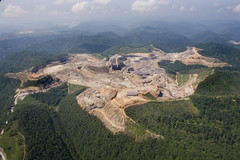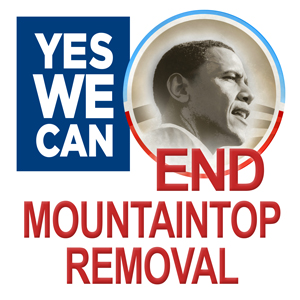Here is a link to the original article.
The administration deserves credit for some minimal restrictions on mountaintop mining, but the president’s hands-off approach to coal defeats his climate-change efforts.
Clear-cutting forests, then blowing the tops off of mountains and dumping the debris into stream beds is an environmentally catastrophic way of mining for coal. President Obama and the green activists he has appointed to run his interior-focused regulatory agencies surely know this. But their contortions over mountaintop mining would make a Cirque du Soleil performer wince.
The administration last week announced a number of new restrictions on mountaintop coal mining in the six Appalachian states where it occurs. They are minimal steps that, among other things, will make it harder for mining companies to escape environmental review when seeking permits to blow up mountains. For this, Obama merits polite applause.
That’s in contrast to the much-deserved boos he received last month from environmentalists after his administration quietly sent a letter to coal industry loyalist Rep. Nick Rahall II (D-W.Va.) saying the Environmental Protection Agency wouldn’t stand in the way of at least two dozen new mountaintop-removal projects. It was a dismaying move from an administration that in March had blocked several such projects on grounds that they needed further review — yet some of the ones it greenlighted in May were as big and damaging as the ones it blocked two months earlier. What gives?
Obama is clearly intimidated by coal’s powerful lobby. The industry is a major employer in West Virginia, Kentucky, Tennessee and other Appalachian states, where miners tend to vote for whichever party is friendliest to Big Coal. Yet there’s also strong grass-roots opposition to strip mining in those states because of the effect it has on local communities; the technique poisons water supplies and pollutes the air with coal and rock dust. It also turns forests into moonscapes, ravages ecosystems and buries streams, which is good for neither wildlife nor the tourism industry.
The best approach to mountaintop mining would be to ban it completely. It’s cheaper and less labor-intensive than underground mining, but not worth the environmental cost. At a minimum, Obama should address some other highly destructive rule changes imposed by the Bush administration — a good place to start would be restoring a regulation that forbade mining within 100 feet of a stream, and disallowing the use of mine waste as “fill” material in waterways.
Obama can’t sidestep this issue forever, especially because his hands-off approach to coal defeats the purpose of his efforts to fight climate change. Coal is a key culprit in global warming, and it makes no sense to encourage cheap coal while seeking to boost renewable energy.




 As always, those intrepid and resolute reporters
As always, those intrepid and resolute reporters 
 Yesterday, the Obama administration took a small step in the right direction.
Yesterday, the Obama administration took a small step in the right direction.



